Issued capital vs Paid-up capital in Singapore
In Singapore, issued capital and paid-up capital are two important concepts related to a company’s share capital, but they refer to different aspects of a company's financial structure.
8/22/20243 min read


Issued capital vs Paid-up capital in Singapore
In Singapore, issued capital and shares refer to key components of a company’s equity structure. Here's a breakdown of each:
1. Share Capital:
Definition: A share represents a portion of the company which belongs to a shareholder in exchange for their financial contribution to the company’s share capital. Shares may be fully or partially paid-up.
2. Issued Capital
Issued capital refers to the amount of money that shareholders have committed to the company. In Singapore, the minimum issued and paid-up share capital required to incorporate a company is $1. The “Paid-up capital” refers to the amount that shareholders have paid to the company for their shares.
Example: Company A issues 100,000 shares at $1 each to a shareholder but the shareholder pay only 50% upfront. It means that the paid-up capital is $50,000 and the unpaid shares capital is $50,000. Subject to the Company’s Constitution, the Board of Company A may call upon the shareholder to pay the outstanding unpaid portion of shares within a specified period.
3. Shares
Definition: A share represents a unit of ownership in a company. When you own shares in a company, you are a part-owner of that company, and the extent of your ownership is determined by the number of shares you hold relative to the total number of shares issued.
Par Value: In Singapore, following the Companies (Amendment) Act 2005 (effective 30 January 2006), all shares of a company are now issued without par or nominal value.
Types of Shares:
Ordinary Shares: These typically carry voting rights and the right to dividends, which are paid out of the company’s profits. It can also be divided into classes (e.g. Class A and Class B) which may have different rights.
Preference Shares: These usually have a fixed dividend rate and do not carry voting rights, but they have priority over ordinary shares when it comes to dividends and repayment in the event of liquidation. It can also be categorised as Redeemable Preference Shares and/ or Convertible Preference Shares.
Treasury Shares: Treasury shares are ordinary shares that the company has purchased from its shareholders. Although the company is recorded as holding these treasury shares, it is not allowed to exercise the right to attend or vote at meeting or receive dividends for treasury shares.
Key Differences
Issued Capital vs. Paid-up Capital: While issued capital refers to the total value of shares that have been issued to shareholders, paid-up capital refers to the amount of issued capital that has been fully paid by shareholders. In practice, issued capital is usually equivalent to paid-up capital in Singapore.


Important Compliance in Singapore
Compliance: Companies in Singapore must have a minimum issued capital of $1 to be incorporated. There is no maximum limit on issued capital.
Equity Financing: Issued capital represents the company’s equity financing and determines the ownership structure among shareholders. Understanding issued capital and shares is crucial for managing equity, securing financing, and maintaining proper corporate governance in a Singapore company.
In Singapore, the threshold of issued capital that determines membership in the Singapore Business Federation (SBF) is $500,000. All companies with an issued capital of $500,000 or more are automatically registered as members of the SBF. This is mandated under the Singapore Business Federation Act.
These companies are required to pay an annual subscription fee to the SBF as part of their membership obligations. Companies may apply for fee exemptions subjected it fulfil the prescribed requirements of SBF.
Issued Capital below $500,000: Companies with an issued share capital below $500,000 are not automatically registered but can choose to join the SBF as voluntary members if they wish.
Representation: The SBF serves as a unified voice for the Singapore business community, representing the interests of its members in various forums and with the government. Being a member of the SBF can provide various benefits, including access to business networking opportunities, advocacy, and support for internationalization efforts.
Find out more about: https://www.sbf.org.sg/membership-tacs/membership
This publication is provided for general information purposes only and is not intended to cover every aspect of the topics with which it deals. It does not constitute legal, tax, or accounting advice. Readers should not rely solely on this content for making decisions without consulting a qualified professional. Reading our articles does not create a provider-client relationship between the reader and our firm.
While we strive for accuracy, laws and regulations change frequently, our articles may contain links to external websites or resources. We do not endorse or guarantee the accuracy of such content. We make no representations, warranties or guarantees, whether express or implied, that the content in the publication is accurate, complete or up to date. Use the information at your own risk.
Before taking any action based on our articles, consult a qualified attorney, tax advisor, or accountant pertaining to your unique situation. Always seek legal advice to ensure compliance with local regulations and ethical standards.
ADVISORY SERVICES
Compliance Outsourcing
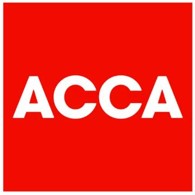

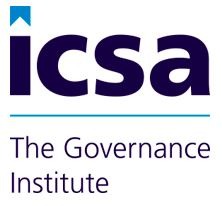

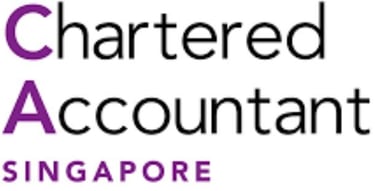
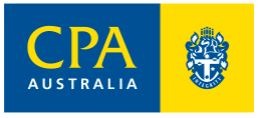

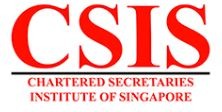


Adept Corporate Services (ACS) is a leading corporate service provider, offering comprehensive business solutions, including entity formation, corporate secretarial compliance, bank account opening (including offshore entities), corporate accounting, fund administration, tax compliance, MAS & SFC licensing & Compliance outsourcing, work visa applications, and payroll services.
Singapore| Malaysia | China | Hong Kong SAR | USA | British Virgin Islands | Cayman Islands
新加坡 | 马来西亚 | 中国 | 香港特别行政区 | 美国 | 维京群岛 | 开曼群岛


©2021-2026 Adept Corporate Services | All Rights Reserved


